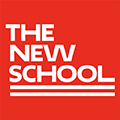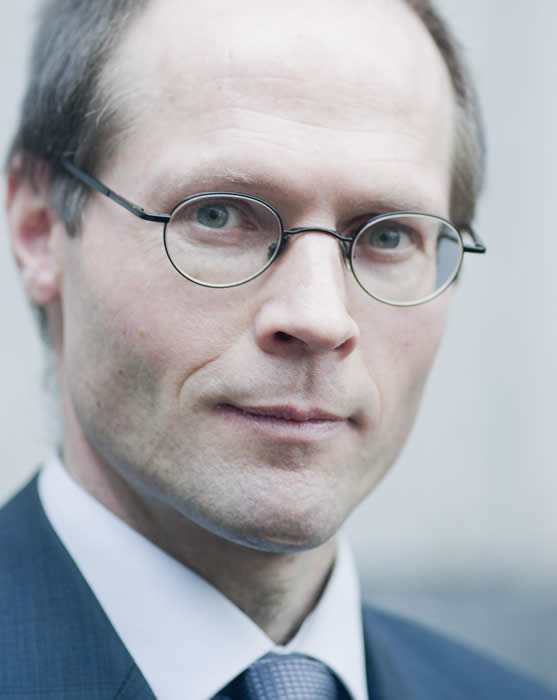THE NEW SCHOOL'S 25th SOCIAL RESEARCH CONFERENCE: HUMAN RIGHTS AND THE GLOBAL ECONOMY
|
NEW YORK, October 17, 2011 - The New School for Social Research's Center for Public Scholarship and its flagship journal, Social Research: An International Quarterly, present Human Rights and the Global Economy from November 9 to 10 at The New School. This event is part of a year-long celebration of The New School's International Affairs program. "In response to the increasing globalization of the world's economy, the relationship between human rights discourse and economic policies continues to grow," said Sakiko Fukuda-Parr, Professor of International Affairs at The New School for Public Engagement. "By bringing together leading theorists and practitioners from both fields, we will explore ways that governments, citizens and corporate entities can foster a global economy that advances rather than impedes social justice." On Wednesday, November 9, at 6:00pm, Olivier De Schutter, United Nations Special Rapporteur on the Right to Food, will deliver the keynote address, "The Role of Human Rights in Shaping International Regimes." Dr. De Schutter's remarks will be followed by an audience discussion moderated by New School President David E. Van Zandt. All five sessions will focus on the intersection of human rights intersects and macroeconomics. Trade and Intellectual Property features New School professor Sanjay Reddy, the London School of Economics' Andrew Lang and others; Global Poverty and the Obligations of Rich Countries includes The New School's Sakiko Fukuda-Parr, Australian National University's Christian Barry, and New York University's Philip Alston and others; Human Rights, Climate Change and Global Justice offers insight from environmental issues experts including the Christian Michelsen Institute's Siri Gloppen; and Corporations and Human Rights Obligations features Oxfam America's Chris Jochnik and others. Admission to Human Rights and the Global Economy is $30 for the full conference and $10 per session. Non-profit staff and members (with proper ID) may enter at a discounted rate of $15 for the full conference and $5 per session. The conference is free for full-time students (with valid ID) and New School faculty, alumni and staff (with valid ID). Register online at www.newschool.edu/cps/subpage.aspx?id=68396, or by emailing [email protected]. The conference begins Wednesday, November 9 at 10:30 a.m. and concludes Thursday, November 10, at 7:00 p.m. Sessions will be held in The New School's John Tishman Auditorium at 66 West 12th Street between Fifth and Sixth Avenues. The complete program, speakers' bios, and paper abstracts can be reviewed online at newschool.edu/cps/human-rights. Papers presented at the conference will appear in a special issue of Social Research. The conference is made possible with generous support from the Climate Change Narratives, Rights and the Poor project at the Chr. Michelsen Institute (CMI) in Bergen, Norway. |
|
About Social Research, An International Quarterly | An award-winning journal, Social Research has been mapping the landscape of intellectual thought since 1934. Most issues are theme-driven, combining historical analysis, theoretical explanation, and reportage in rigorous and engaging discussion by some of the world's leading scholars and thinkers. Articles cover various fields of the social sciences and the humanities and thus promote the interdisciplinary aims that have characterized The New School for Social Research since its inception. Recent issues have focused on such themes as "Happiness," "Migration Politics," and "The Religious-Secular Divide." The Social Research conference series was launched in 1988 and aims to enhance public understanding of critical and contested issues by exploring them in broad historical and cultural contexts. For more information, visit www.newschool.edu/cps.
About the Center for Public Scholarship | The Center for Public Scholarship aims to bring the best scholarship and expertise to bear on current, pressing social issues in a way that makes the scholarship accessible to the public and simultaneously deepens understanding of what may be at stake and how to proceed. It seeks to become a catalyst for events that draw on the humanities, social sciences, design, and public policy and have the potential of accomplishing our mission, namely, enhancing the public's understanding of the significant issues of our time. The Center is dedicated to promoting academic freedom and freedom of inquiry, goals that are rooted in the earliest history and ideals of The New School.
About The New School | The New School, based in the heart of New York City's Greenwich Village, is a legendary, progressive university inspiring undergraduates, graduate students and others to catalyze change in an inconstant world. Founded in 1919 as a hub of intellectual freedom by a group that included Charles Beard, James Harvey Robinson, John Dewey, and Thorstein Veblen, The New School today is a major degree-granting university comprised of distinct academic divisions. The university's 10,500 students are enrolled in 88 degree programs in the humanities and social sciences, design, administration and management, and the performing arts. In addition, the university's campus welcomes 3,544 adult learners in more than 650 continuing education courses every year. The New School holds hundreds of public programs that exemplify its commitment to democratic practice and social justice. For more information, visit www.newschool.edu. |
 |
COMMUNICATIONS AND EXTERNAL AFFAIRS |
| 79 Fifth Avenue, New York, NY 10003 www.newschool.edu |
PRESS RELEASE |
Media Contacts: Sam Biederman |
|
|
